The Creative and Artistic World: On Becoming an Expert
Being in the art gallery business, we are often asked "what it takes" to become a successful artist.
It's one of those questions I really dislike, having been in the art business since 1985.
Not that there is really anything wrong with asking that, mind you... but it's one of those "generic" questions that sits right up there with trying to determine what it means to be "a NICE person."
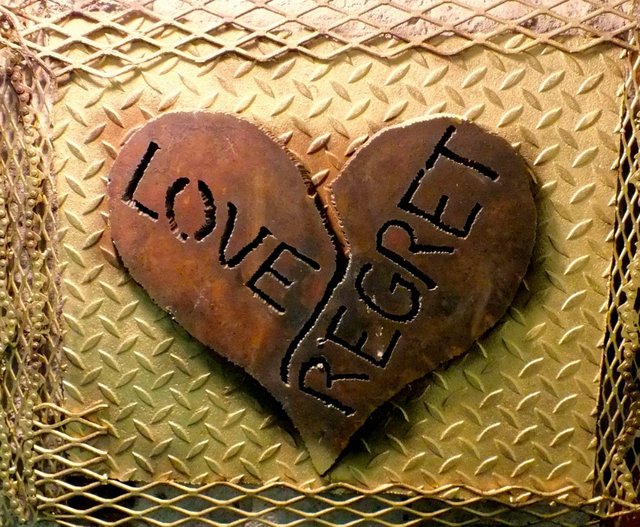
"Love/Regret" metal sculpture by Ephraim Brown
Well, It Depends...
"Being a successful artist" is one of those concepts that depends entirely on each individual person's definitions of "success." I've covered that, in a previous post, some months back.
What I wanted to do today was instead address the answer through a broader lens, as often applied in other fields: the underlying concept of "Becoming an Expert."
Whatever your ambitions as an artist may be, it would be a fairly reasonable assumption that if you were able to attain the level of "expert" in your field, then you could extend that to include your definition of success.
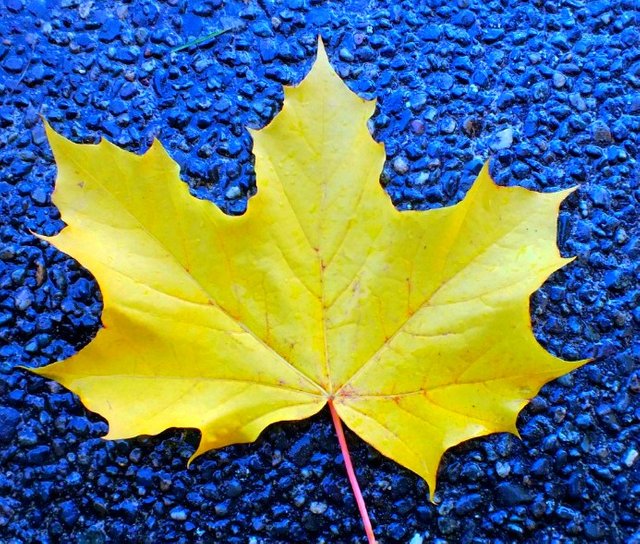
"Maple Leaf"
Talent vs. Expertise
"But what about natural talent?" is one of the first questions that typically pops up, in the context of this line of inquiry.
Talent is actually a bit of a slippery fish, when it comes to "success" and "expertise." In some ways, having a large dose of natural talent might help you on your path... but it's no panacea or magic pill.
In some ways, talent can actually get in your way because being an "innovative genius" might lead you to reject conventional approaches currently being used... and pioneering something radically new is actually a lot harder than fitting what you have to offer within an established framework.
So my final observation about "talent" would be to exercise discernment and accept the possibility that you may be best served by "toning it down" till you have it to "expert," after which you can pretty much do what you want... because people have then already embraced that you really know what you're doing.
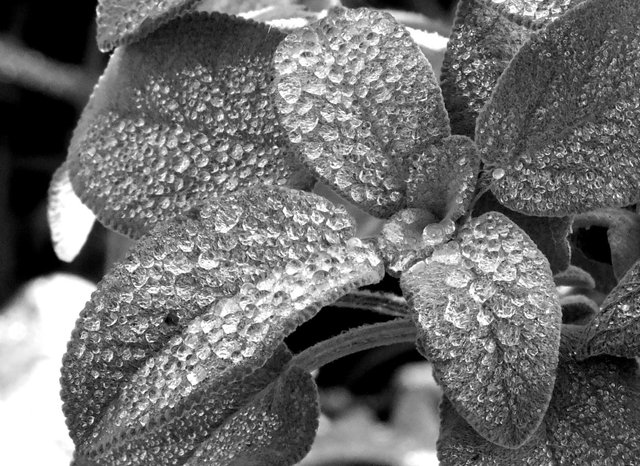
"Dewdrops"
Attaining Expertise
There are different measures for what it means to become an expert.
A traditional thumbnail measure has long been that it takes five years to become an expert at something. Of course, that is a rather open-ended measure... prompting the follow-up question "five years of WHAT?"
Perhaps a more realistic measure would be the one set down by author Malcolm Gladwell in his book "Outliers:" 10,000 hours. Which — coincidentally — is roughly the same as working 40 hours a weeks at something, for approximately five years...
As a personal anecdote, I paint intricate mandala designs on stones. It took me at least five years to take that from something people around me felt was "a passing phase I'd get over" to an art form I am now fairly well-known for.
What made the process longer and more involved was the additional "wrinkle" that I was also creating art with a "metaphysical element." That required me to develop it beyond just "something aesthetically interesting" and into the realm of "art with a healing aspect."
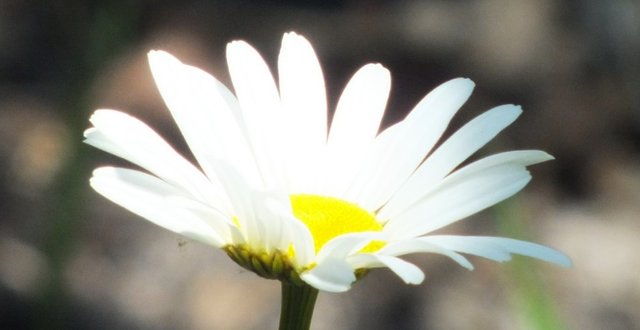
"Daisy"
But Am I not Already an Artist or Writer BEFORE That?
People often get discouraged when I tell this story and want to know whether they are just not an artist (or writer, or other creative) before that much work.
Well, of course you are!
But let's get back to the original question up at the top... and to your own definition of what "successful" might be.
Remember, in the olden days, the process of "becoming an artist" was typically a process that included years of being an apprentice to a "Master" of some medium of artistic expression before you would ever consider calling yourself an artist, in your own right.
In our modern times, that's a long process we have more or less done away with, but it's still worth keeping in mind.
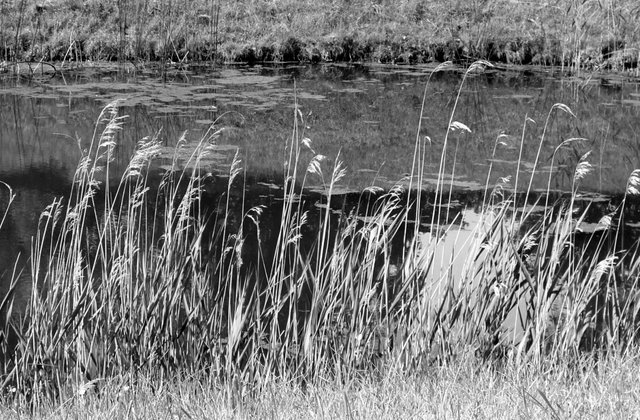
"By The Pond"
No Shortcuts
The main point I am making here is mostly that there really aren't any shortcuts here. Certainly, we can come up with "exceptions," and they tend to make it to the news... but they are just that, exceptions. Most successful artists and other creatives get where they are through determination and a willingness to persistently do the work over a prolonged period of time.
One of our most successful artists at the Red Dragonfly only just became "100% dependent" on her artwork last year, after 11 years in the business... and the last six working part time as an office manager while doing her art pretty much full-time.
But don't lose sight of your dreams!
Just understand that the best way to realize your dreams is to WAKE UP and make them come true!
Thanks for reading!

20190503
0200
Congratulations @reddragonfly! You have completed the following achievement on the Steem blockchain and have been rewarded with new badge(s) :
You can view your badges on your Steem Board and compare to others on the Steem Ranking
If you no longer want to receive notifications, reply to this comment with the word
STOPTo support your work, I also upvoted your post!
Do not miss the last post from @steemitboard:
Vote for @Steemitboard as a witness to get one more award and increased upvotes!
I particularly love the dewdrops. Its a favourite subject on mine - water droplets and plants. I am gathering quite a collection and think I might showcase them together here on steemit.
Have an awesome weekend.
Hi reddragonfly,
Visit curiesteem.com or join the Curie Discord community to learn more.
Hello!
This post has been manually curated, resteemed
and gifted with some virtually delicious cake
from the @helpiecake curation team!
Much love to you from all of us at @helpie!
Keep up the great work!
Manually curated by @vibesforlife.
wise words which should be repeatedly read by a lot of people with a big dreams but short character.
Very interesting dissertation.
It took me back to my grad scholl years. I remember this one Creative Writing class I took (don't ask me why, I was doing something else, but it was quite an experience) where every student there, even though they had not puplished anything yet, thought of themselves as writers.
Of course, the definition has been quite opened now, but in my view, to think of oneself as a (successful) writer is attached to a certain level of acceptance or recognition determined by publications, critics, sales, etc.
I think that no matter how personally we want to define success (be content with what you do regardless of people's opinion), there is an intrinsic social/economic element to the concept that makes artists dependant of public opinion and acceptance.
Success and Expertise seem like the most dreaded words in the artistic world, how do you measure something like that? Time and effort are not the same for anyone or any discipline, I think this sums up the best way to answers that question, work, just a lot of work, until the job's done, thanks for sharing your thoughts!
This post was nominated by a @curie curator to be featured in an upcoming Author Showcase that will be posted in about 12 to 24 hours on the @curie blog.
NOTE: If you would like us to NOT feature your post in the Author Showcase please reply, or DM me on Discord as soon as possible. Any photos or quoted text from your post that we feature will be properly attributed to you as the author.
You can check out our previous Author Showcase to get an idea of what we are doing with these posts.
Thanks for your time and for creating great content.
Franz (@curie curator)
Nice reflection on how to direct success, it is true that everything you wrote and really the photos are beautiful, I was very impressed with the shots!